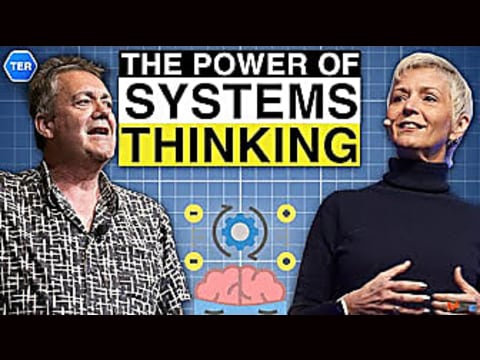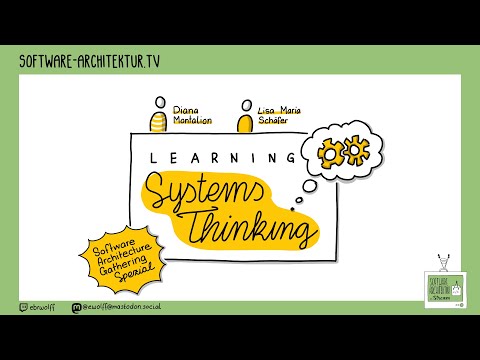· Blog · 14 min read
Rest and Renew
I’ve learned essential lessons about rest and renewal over the last decade. For example, renewing my energy is the most trustworthy bellwether of career satisfaction and success. Which surprised me. Pushing less hard is counterintuitive.

It is mid-November, fall, where I live. Only kale and brussel sprouts remain in the garden. Soon, I’ll tuck straw over the beds, like a blanket, so compost can nourish the soil through the winter. My garden is moving into rest and renew phase.
Meanwhile, I’m also in a brief rest and renewal phase, with five days off from work. Before this pause, I thought about how to use this time. What shall I do to feel revitalized by Monday?
The days off have been bumpy, varying from “feeling more easeful than I’ve felt in months” to “wicked anxious”. Time off does that to me sometimes. I make resting a TO-DO and “being rested” the achievement. Which is hardly restful, especially in the midst of a pandemic.
Fortunately, I’ve learned essential lessons about rest and renewal over the last decade. I (surprisingly) discovered that choosing to renew my energy is the most trustworthy bellwether of career satisfaction and success. Which surprised me. Pushing less hard has always seemed counterintuitive.
What also surprised me was, I suck at resting and renewing. So, I’ve learned the hard way how to do it. I’ve also learned that everything in my life is better when I follow some foundational principles. Those principles are:
Encourage flow. Renewing energy is different from relaxing. It involves stimulating the right kind of energy, removing blockers and channelling that energy so you can experience it.
Practice mastery by staying grounded in what matters.
Strengthen inner integrity by learning to respond instead of react. When resting and renewing, we step off the treadmill of achieving and instead cultivate self awareness and tending.
Apparently, I still like to test these principles - see what happens when I ignore them. SPOILER ALERT: Nothing good, long term. Perhaps you will do better – simple try them out, with easefulness, see how it goes?
Encourage flow
“To overcome the anxieties and depressions of contemporary life, individuals must become independent of the social environment to the degree that they no longer respond exclusively in terms of its rewards and punishments. To achieve such autonomy, a person has to learn to provide rewards to herself. She has to develop the ability to find enjoyment and purpose regardless of external circumstances.” ― Mihaly Csikszentmihalyi, Flow: The Psychology of Optimal Experience
Resting and renewing recharges our batteries when they become low – which they do, everyday. Refilling our batteries requires sparking some energy, removing any blockers to its flow and channeling that energy in a direction.
Imagine a water wheel spinning next to a river, creating potential energy. The river must flow with sufficient velocity, within it’s banks. The same amount of water sitting in a pond won’t create energy. We use that energy to make something, to do work that transforms. When we rest and renew, we similarly apply our potential energy.
We experience the river when we, for example, ride our bike on a fall afternoon. Or paint a figurine, write a poem or plant vegetables in the garden. We experience the pond when we, for example, sit on the couch watching television. Both rivers and ponds have value. We simply need to discern – seeking energy from places that provide none will, well, provide none.
Many of us have been taught to look outside of ourselves for renewing experiences, Disney World or pretty scenery or vodka. But we are the wellspring from which we renew. Our attention, well placed, charges our battery. Our internal energy, well applied, renews us.
Not necessarily relaxation
When deciding to read this article, perhaps you expected recommendations like “buy bath salts,” “schedule ‘“me time”,” “put your feet up,” “drink a glass of wine,” “watch a sunset,” “schedule a massage (if Covid allows).” I recommend and enjoy all those things! They are relaxing, which is delightful. But they are not renewing, necessarily.
Renewing our energy is different from relaxing. It is different from only resting. When we rest, we renew a bit. Enjoying an evening watching TV may be restful but not renewing. It doesn’t plant energetic seeds we can harvest later. We can renew without fully resting, doing a renewing activity in a hurry, for example. But we’ll get the most benefit from doing both at the same time.
When we rest and renew, we gather ourselves, remove inner stuck spots, settle down our thinking and striving, reconstruct our inner integrity, and reengage our self-directed mastery (which settles us down).
“Work hard; play hard” is not renewing. We try to balance our doing (leaning in), with undoing (kicking back). TGIF! “Play hard” usually involves activities that leave us more drained, like drinking, overeating, gambling, etc. Again, those aren’t necessarily bad things to enjoy, they are simply not restful or renewing.
Side rant: Yoga and meditation are often blithely recommended for relaxation and stress relief. Both, when done mindfully, usually make us feel more stressed, at least at first. Rather than avoiding our feelings and numbing our discomforts, we become aware of them. Mindful practices shine a light on our discomforts and for awhile, leave us feeling uncomfortable. That’s a good thing. While I recommend body practices and encourage meditation, I do so in support of unblocking our energy, increasing self awareness, rather than as a quick trip to “la-la-land.”
Stimulate
What is the “spark” that can lead to renewal? There are as many sparks as there are people. A spark is an activity that you enjoy for its own sake. Not for the reward, not for the pleasure it brings (though that’s nice) but for the focus and renewal you experience.
What is something you pay deep attention to, that requires comfortable skill while nudging you outside your comfort zone? What activity allows the world to fall away as your energy becomes more focused?
Some of my sparks are reading, writing (like this article), backpacking, studying in a library, some types of crafts, some types of game playing, building things, coding, thinking, modeling and whiteboarding.
Two people can be doing the same activity, cooking dinner for example, and only one has sparked some energy. The person who is cooking for the experience of cooking, deeply engaged in the sensations of food and creatively transforming it. The other is getting dinner on the table, simply doing a chore. (Side note: interestingly, the primary difference between the two is the chosen context: “cooking for the experience of cooking” vs. “doing a chore.”)
What activity creates it’s own sustainable energy once you’re into it?
Sometimes, our work is renewing. That’s the ideal, yes? As I’ve embraced these principles, my work day includes more rest and renewal because I design my day to include tasks that are intrinsically satisfying. This isn’t usual though. Even when I can work deeply, I find I need other types of rest and renewal outside of work. We can mix and match methods of sparking energy, depending on circumstances.
Remove blockers
Usually, we aren’t drained because we give too much energy away. We are drained because we are constantly restricting our natural energy flow in order to put time, energy and attention elsewhere. We ignore our bodies except to “work out.” We suppress our feelings and the urge towards energy-renewing activities. We rely on unhealthy habits to keep our energy artificially stimulated. This is exhausting, over time.
Once we’ve stimulated renewing energy, we need to remove blockers to letting it flow. For me, Slack notifications and easy access to social media are big interrupters to flow. I don’t keep my phone or other devices on me. Noise is another issue for me. I play background music (no words) so that normal house sounds don’t distract me. I make myself comfortable – wear warm socks and get a blanket for my lap. I should keep water nearby because I get distracted by thirst, which leads to making tea which leads to wandering away … and, I often forget.
While we usually think we are blocked by “not enough time” or other distractions, we are more often blocked by our body. We move ourselves into repetitive postures (like sitting at a desk) but we never unwind ourselves from those postures. We are blocked by how our bodies contract when we are drained. When we try to focus, our discomfort tricks us into thinking we should go do something else. Move, distract. We’re just experiencing blocked energy.
Sometimes we need to go for a walk; think about the thing we are focusing on while moving. I get out of the chair, down on my woven rug to stretch when I get stuck. Or I stand at a whiteboard where I can put ideas in any shape I like, or I work at a standing desk.
Body practices like yoga or massage help make us aware of out stuck places, physically, but they need to be accompanied by the intention to work with them in our daily lives. Noticing how our bodies feel as we go through our day - “how deep is my breathing? - illuminates clues to which activities drain us and which renew us.
Channel
Before Pema Chödrön became an internationally-known teacher and writer, she was a person trying and failing to focus her energy. Her teacher would say “Relax and write.” She needed to let go of all the expectations and simply engage.
Rather than get all caught up in the myriad of things we could do and ideas we might chase, we need to channel our energy (in Pema’s case, into a dharma talk). We need a container, banks along the side of the river so we can flow down it. And, ideally, we need to let ourselves be easeful while on that river.
Our renewing energy flows into something, otherwise it will spew like an open fire hydrant. Or spin like eddies in a river. Our channel can be reading a book or any activity that has some reasonable shape at completion. [Robb comment: I feel like you could say more about what an “activity that has some reasonable shape at completion” looks like… a couple more examples, maybe?]
Practice mastery
How do you prioritize what activities are most important to do? How do you set boundaries around the energy draining activities and create more space for energy renewal? We can decide to practice mastery: choosing activities that develop satisfying, matterful skills that require practice and surprise us as we go deeper into them. (This is why, for some, cooking can be a good choice. Or meditation or woodworking.)
In daily life, it is easy to get blown around by every wind. There is so much to do, say, fix, engage in, respond to, consider, satisfy, etc., etc., etc.. We want so many things. When our rest and renewal time includes some form of practicing mastery, whether a creative endeavor, a physical activity, or learning, we also practice settling our attention on something we value. We practice making tradeoffs between external pressures and internal focus. If we are consistent, we guide ourselves towards deeper, more renewing options.
While practicing, we decide what matters, what is “enough.” We decide whether to use more blue or green, more adverbs, fewer adjectives, whether to throw underhand, and so on.
This grounding in our own decision-making process helps keep our attention focused on our own intentions. Then, when we are in the midst of a chaotic work situation, we are more likely to hear that voice of discernment. We get less caught up in the drama and stay more connected to what matters to us.
Staying grounded in what matters
Another exhausting pattern in our lives is pouring energy into things that don’t matter to us. We have good reasons for doing this and, to some extent, it is inevitable. Changing our point of view is one solution. Sometimes we aren’t treating things that matter — like cooking, example — as if they matter. Nourishment is attention as well as activity. Paying attention makes everything more enjoyable.
Regardless of the strength of our mission and values, we are offered nearly-infinite opportunities to become confused about what matters. We do things for money or attention (which are often the same thing), even though we don’t value doing things simply for money or attention. We value doing an activity because it has meaning and purpose. Yet, we have mortgages to pay, children to feed, clothing to wear in winter. And we live in economies that trade, predominantly, on money and attention. “Mission-driven” and “values based” is a nice-to-have.
If we hope to make a difference in the world through activities that matter to us, we need to stay grounded in what matters to us. Which, given the power of the world’s distracting pull, is incredibly difficult. Resting, renewing, and practicing mastery all help us choose — when the mind is dizzy with choices — the ones that matter most. Not all the time. Perhaps not most of the time. But sometimes. And sometimes is probably good enough.
Right here, right now, matters
When we aren’t sure what matters, we can fall into this moment, this task, right here, right now. Resting and renewing depends on our ability to be right here — in this space time. This is extremely difficult for most of us. The simple practice of noticing your breathing, feeling your feet on the ground, or paying attention to your hands as they do a task (again and again) opens the floodgates on our ability to stimulate energy, unblock it and channel it towards matterful activities we hope to master.
Strengthening inner integrity
“We tend to run our whole life trying to avoid all that hurts or displeases us, noticing the objects, people, or situations that we think will give us pain or pleasure, avoiding one and pursuing the other.” ― Charlotte Joko Beck, Everyday Zen: Love and Work
We need rest from the endless cycle of feeling we are not enough, not good enough, didn’t do enough, don’t have enough. The world around us is designed to keep us chasing the fake rabbit around the track. To seek comfort and avoid discomfort. Resisting this cultural gravity can sometimes be even more exhausting than running with it.
Many of us feel a constant tug to prove ourselves, to achieve. We experience this urge as life-and-death. In some ways, it is. Our work feeds us, literally. When is the effort chasing our own tails, an empty activity that uses up energy and never leads to satisfaction or satiation? [Robb edit: I have trouble parsing the previous sentence. I think you’re saying: “When is ‘achieving’ or ‘striving’ merely chasing our own tails — an empty activity that uses-up energy and never leads to satisfaction or satiation?” Is that correct?] Replacing achievement-seeking with practicing mastery helps us let go of chasing the rabbit and instead, enjoy running.
Respond instead of react
Our greatest skill is learning to respond instead of react. The ability to stay reasonably aware of ourselves, our feelings and our experiences while making choices about where to invest our time, energy and attention. When something happens outside of us, a demand is made on our time for example, we need space to know how to respond. We need the inner integrity to prioritize what matters and to stay grounded. It’s a dance, a balance, a practice. A practice of responding to circumstances rather than reacting to them. Responding creates more space for rest and renewal; like swimming, a rhythmic movement that requires energy yet simultaneously renews energy.
Reacting is like being dragged out with every tide.
The quality of my life and my work depend on my ability to rest and renew. Learning this has taken decades. And I will likely be learning it (again) for the rest of my life. The payoff for me is this: when people work together in ways that respect these principles … they are significantly more successful and impactful. And enjoyable. The secret to creating elite teams of people who can do business-valuable things isn’t to make them chase the rabbit faster. It’s to encourage (and practice) constantly resting and renewing — and trusting the strength of their powerful urge to run.



